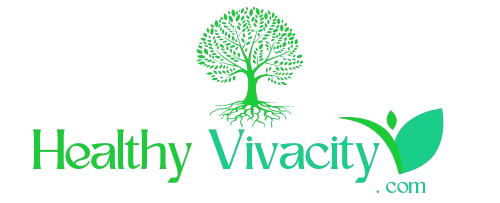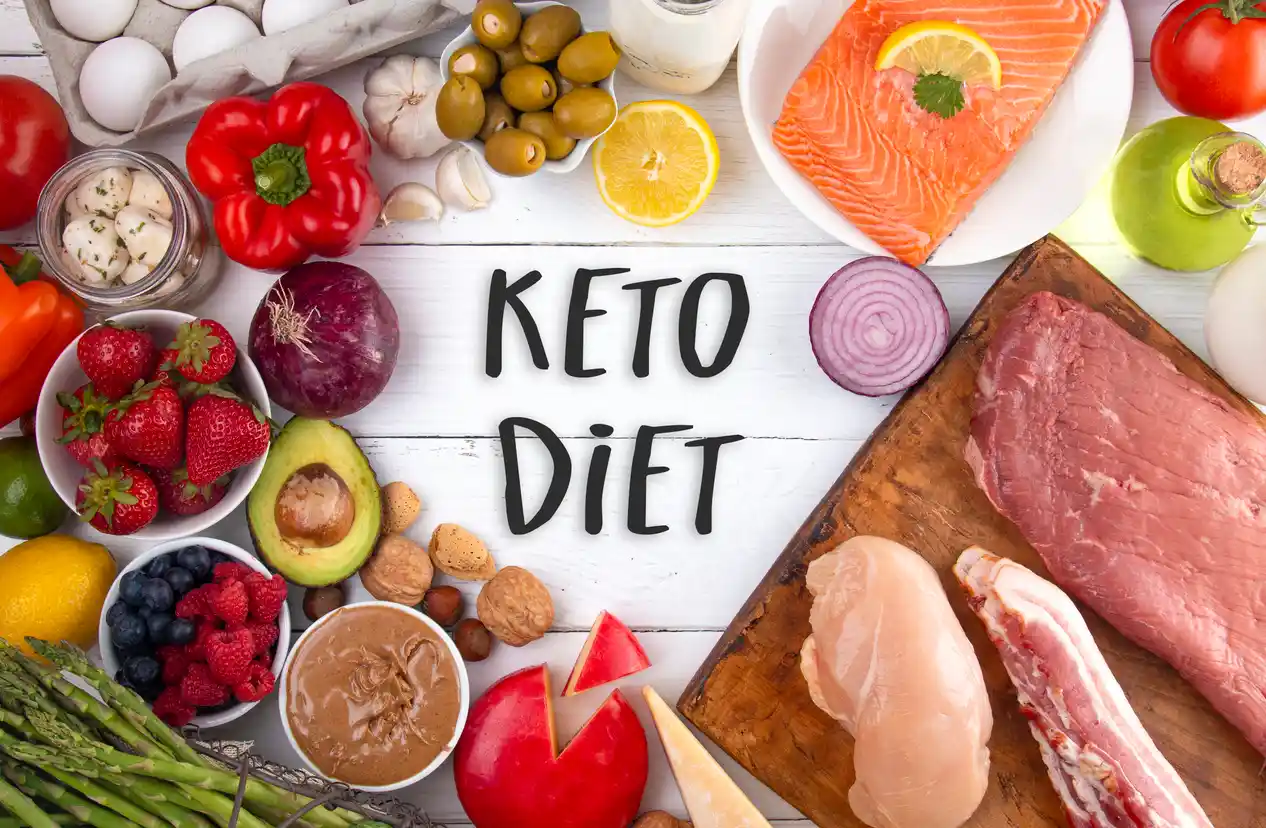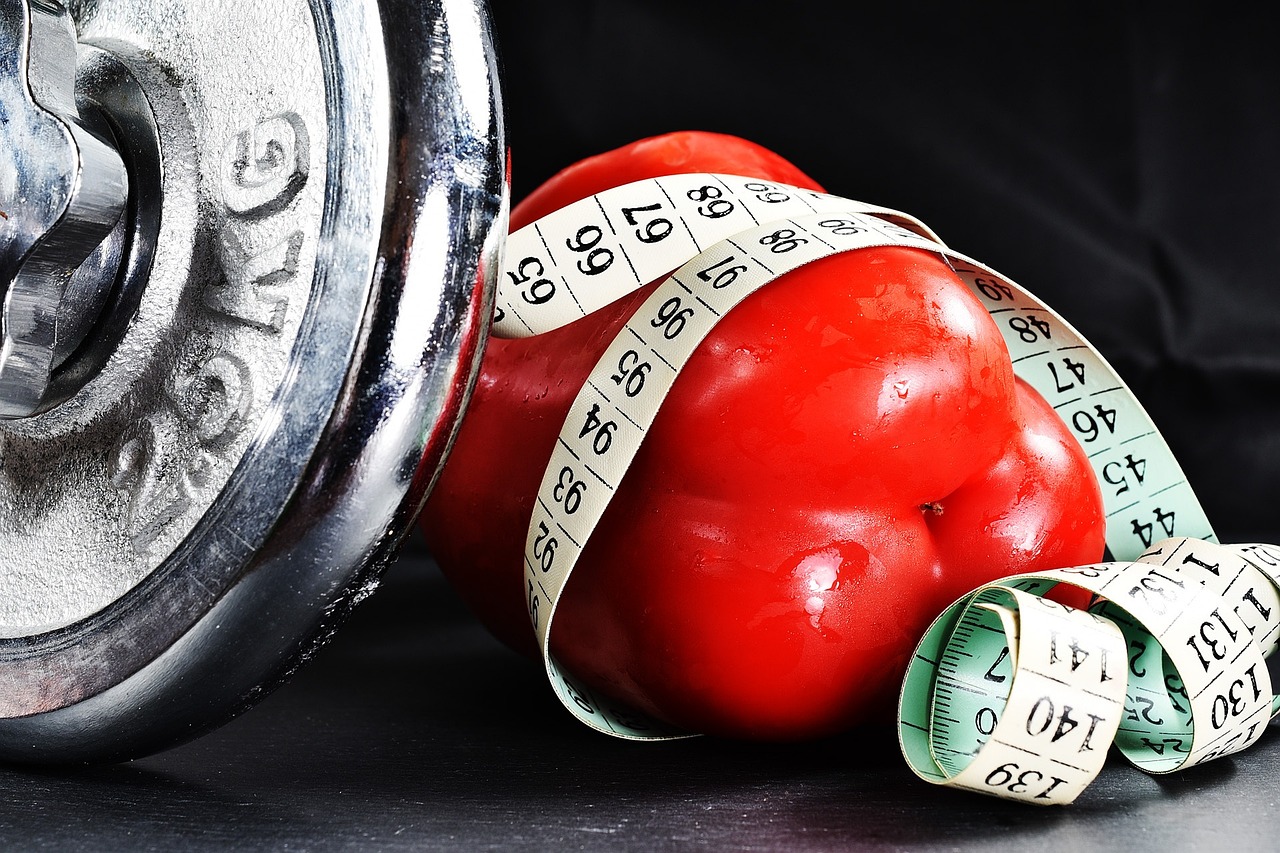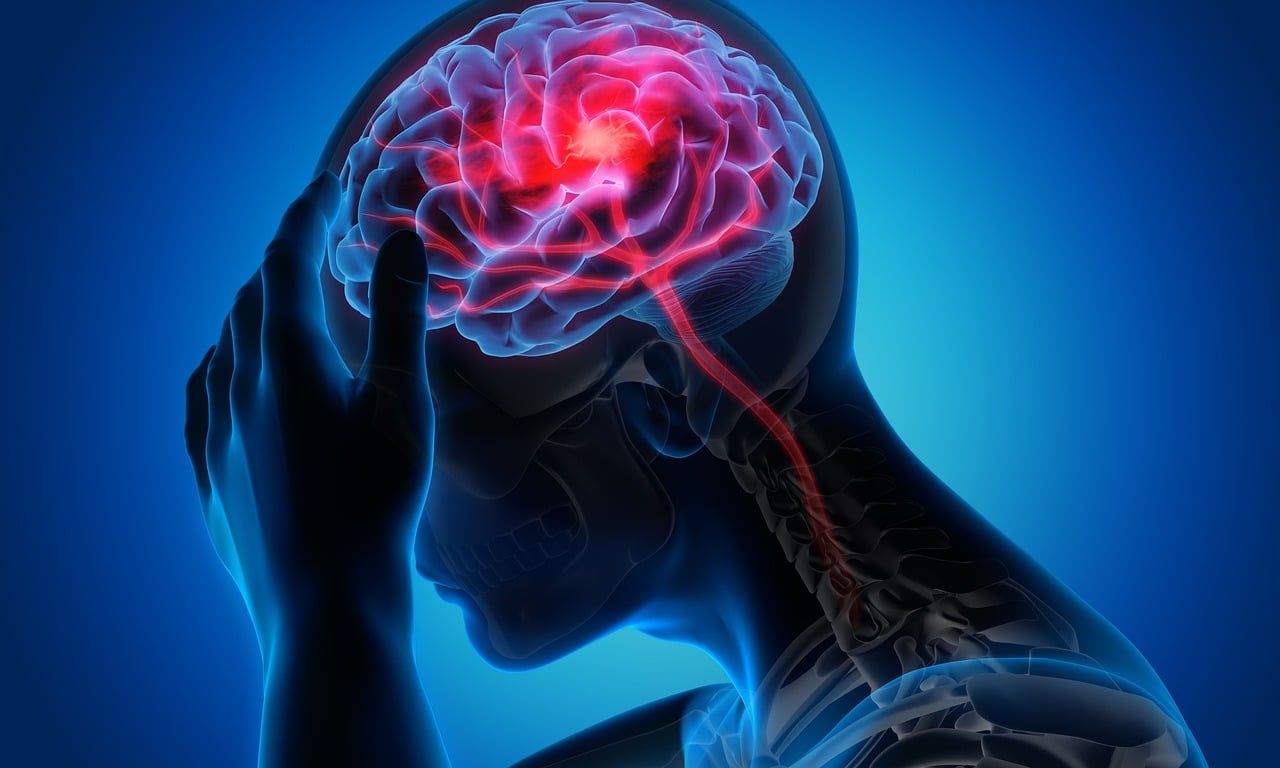What is the Keto Diet?
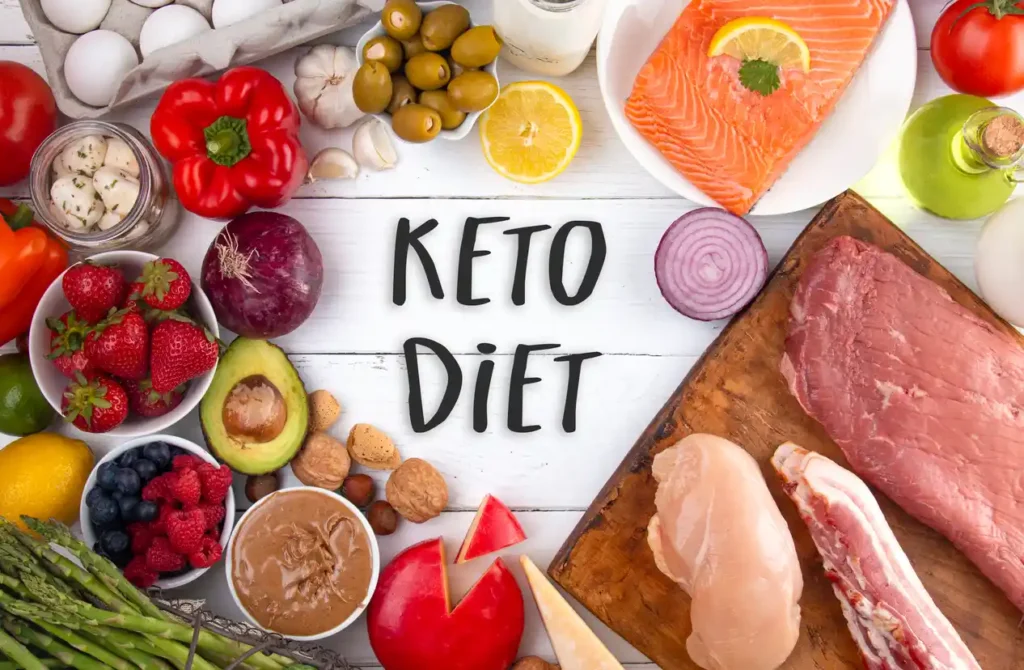
The keto diet (short for ketogenic diet) is a low-carb, high-fat diet designed to put your body into ketosis. This diet plan focuses on restricting carbohydrate intake so that the body enters a state of ketosis. Ketosis is a natural phenomenon, a normal metabolic process that puts our body in survival mode due to low carbohydrate intake. When our body does not have enough sugar (glucose) for energy, it starts burning stored fat, which causes our body to build up acids called ketones.
How does the ketogenic diet work?
The keto diet’s main goal is to force the body to use a different fuel type. Instead of relying on glucose from carbohydrates like vegetables, grains & pulses, and fruits, the ketogenic diet relies on ketone bodies, a type of fuel produced by the liver from stored fat. Here’s a simple breakdown of how it works:
Healthy Tips Archives – Healthy Vivacity
🔁 Normal Body Function (with Carbs):
- Glucose is your main source of energy.
- You eat carbohydrates (like bread, rice, sugar):
- Your body breaks them down into glucose (sugar).
- Insulin helps move glucose into your cells.
🧠 What Happens on Keto:
- You cut back on your carbs a lot (usually 20-50 grams per day).
- Your body runs out of glucose.
- It looks for a new fuel source: fat.
🔥 Ketosis begins:
- Your liver breaks down fat and turns it into ketones.
- Ketones become your body’s new fuel, especially for the brain.
- You start burning fat for energy — from food and stored body fat.
💥 Main effects:
- Weight loss (due to fat burning and decreased appetite).
- Stable energy levels (no sugar crashes).
- Improved blood sugar control (very low carb intake).
Anadamide Meditation: The Key to Unlocking Bliss and Inner Peace
What are the Health Benefits of Keto Diet?
Many studies have shown that the ketogenic diet can help with weight loss and improve health. It also has health benefits against epilepsy, diabetes, Alzheimer’s disease, and cancer.
Here are the main health benefits of the keto diet, backed by science:
🔥 Weight loss
- Burns stored body fat for energy.
- Helps reduce fat without losing muscle (especially through adequate protein).
- Stabilizes blood sugar levels and reduces appetite by increasing satiety hormones.
💉 Improves blood sugar and insulin levels
- Great for people with type 2 diabetes or insulin resistance.
- Reduces blood sugar levels and reduces insulin spikes.
🧠 Improves brain function
- Ketones provide steady fuel for the brain.
- Originally used to treat epilepsy, especially in children.
- May improve attention, clarity, and mental strength.
❤️ Good for heart health (when used properly)
- May improve good HDL cholesterol.
- May reduce triglycerides.
- Reduces some risk factors for heart disease (when focused on healthy fats).
⚖️ May reduce inflammation
- Ketones may have anti-inflammatory effects.
- May help with conditions like PCOS, acne, and joint pain in some people.
🍽️ Appetite control
- Many people feel full for longer periods.
- It’s easier to stick to a calorie deficit without feeling hungry.
⚡ Bonus: May help with
- Acne
- Migraines
- PCOS (Polycystic Ovary Syndrome)
- Some neurological conditions (Alzheimer’s, Parkinson’s – ongoing research)
> ⚠️ Note: Keto is not for everyone. Those with a medical condition should consult a doctor before starting.
Intermittent Fasting Menopause: Health and Weight Management
✅ Healthy Keto Food List
🥩 Protein (moderate amounts)
🥑 Healthy fats (main fuel source)
- Avocado
- Butter or ghee
- Cheese
- Olive oil
- Coconut oil
- MCT oil
- Full-fat yogurt (unsweetened)
- Nuts and seeds (almonds, walnuts, chia, flax)
🥬 Low-carb vegetables
- Spinach
- Kale
- Zucchini
- Asparagus
- Cabbage
- Broccoli
- Cauliflower
- Mushrooms
- Belle peppers (in moderation)
🍓 Low-carb fruits (in moderation)
- Strawberries
- Blueberries
- Raspberries
- Blackberries
- (Avoid high-sugar fruits like bananas, apples, grapes)
🥤 Drinks
- Water (your best bet) Friend)
- Sparkling water
- Black coffee
- Tea (green, black, herbal)
- (Avoid sugary drinks or fruit juices)
⚠️ Common Keto Side Effects (also called “keto flu”)
In the first few days, you may experience these:
- Headache
- Fatigue
- Dizziness
- Nausea
- Sugar cravings
- Muscle cramps
- Elation
💧 Tips to reduce side effects:
- Stay hydrated
- Add electrolytes (salt, magnesium, potassium)
- Enough fat intake is essential.
- You don’t want to start with excessive carb restriction – start slowly if necessary.
How to Meal Prep for a Healthy Week in Just 2 Hours
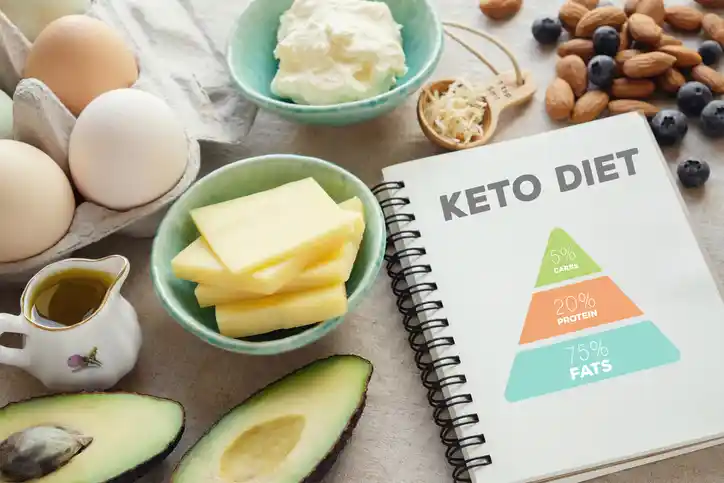
What are the disadvantages of the keto diet plan?
Although the ketogenic diet is considered a miracle weight loss phenomenon, it has helped countless overweight people around the world lose their stubborn weight. Some side effects or disadvantages can make this popular diet plan unhealthy. In addition to restricting a specific food group, weight loss after a ketogenic diet may not be sustainable.
Here are the main disadvantages and risks of following a keto diet plan, especially if it is not done correctly:
⚠️ Keto Flu (Early Side Effects)
When starting keto, your body adapts to burning fat instead of carbohydrates. This can result in:
- Headaches
- Fatigue
- Nausea
- Brain fog
- Muscle cramps
- Irritability
- Sugar cravings
🧂 Solution: Stay hydrated and drink enough electrolytes (salt, magnesium, potassium).
🚫 Nutritional Deficiencies
Eliminating many fruits & grains and legumes can lead to low intake of the following:
- Fiber
- Vitamin B
- Vitamin C
- Magnesium and Potassium
🥦 Solution: Eat a variety of low-carb vegetables and consider supplements if needed.
💩 Digestive issues
- Low fiber = constipation or bowel problems for some people.
🥬 Solution: Include fiber-rich foods like chia seeds, flax seeds, and leafy greens.
🍞 Too restrictive
- Difficult to follow long-term
- Can be difficult to eat out
- Social events may seem limited
- Risks of yo-yo dieting if not done sustainably.
🧠 Mood and energy changes (initially)
- May affect mental performance at first
- Some people experience low energy during adaptation
❤️ Heart disease concerns (if done wrong)
- Eating excess saturated fats (such as processed meats, and butter) can raise cholesterol in some people.
✅ Solution: Focus more on healthy fats like olive oil, avocado, and fatty fish.
🧪 Not ideal for everyone
- These should be avoided or used with caution by:
- People with kidney or liver problems
- Pregnant or breastfeeding women (without a doctor’s guidance)
- People with eating disorders
- Those taking certain medications (especially for diabetes)
10 daily habits to boost your mood and too be happy every day
What are some myths associated with Keto Diet?
The ketogenic (keto) diet has gained popularity, which has led to some misconceptions. Let’s address some common misconceptions:
Misconception 1: The keto diet allows for unlimited fat intake
While the keto diet is high in fat, it’s essential to focus on healthy fats. Excessive amounts of unhealthy fats, such as processed meats, which are high in saturated fat, can negatively impact heart health. It’s recommended to focus on unsaturated fats from sources like avocado, olive oil, and nuts.
Misconception 2: The keto diet is essentially a fad diet
While the keto diet has become trendy, it was originally developed to treat epilepsy in children. Its therapeutic origins suggest that it’s more than just a fad.
Misconceptions 3: Carbohydrates are inherently bad
Carbohydrates are an important source of energy for the body. The keto diet restricts carbohydrates to induce ketosis, but that doesn’t mean all carbohydrates are bad. Complex carbohydrates found in whole grains, fruits, and vegetables provide essential nutrients and fiber.
Myth 4: The keto diet causes muscle loss
When followed properly with adequate protein intake, the keto diet can preserve muscle mass. Incorporating strength training and ensuring adequate protein intake is crucial to maintaining muscle.
Myth 5: The keto diet is not sustainable
Adherence patterns vary among people. Some find the keto diet sustainable, while others may struggle. Success depends on personal preference, lifestyle, and proper planning.
Myth 6: The keto diet is harmful to kidney health
A well-planned keto diet is moderate in protein and generally does not harm kidney function in healthy individuals. However, those with kidney problems should consult a healthcare provider before starting.
Understanding these misconceptions can help individuals make informed decisions about the keto diet. A healthcare professional should be consulted before making significant dietary changes.
15-Minute Home Workouts: The Perfect Fitness Solution for Busy Professionals
Summary
Although the ketogenic diet offers potential benefits, especially for weight loss and certain diseases, it is essential to approach it with caution. It is advisable to consult a healthcare professional before making significant dietary changes to ensure that it is consistent with personal health needs and to monitor for potential adverse effects.
Always consult a healthcare professional before making significant dietary changes to ensure that the keto diet is compatible with your individual health needs.
Here are 5 frequently asked questions (FAQs) about the keto diet:
The ketogenic (keto) diet is a high-fat, moderate-protein, and very low-carb eating plan designed to shift the body’s metabolism into a state called ketosis, where fat is burned for energy instead of carbohydrates.
Entering ketosis usually takes 2 to 4 days after following a strictly low-carb diet. However, this can vary depending on individual factors such as activity level, age, and carbohydrate intake.
Yes, but limiting carbohydrate intake is essential to maintaining ketosis. Some people follow a cyclical keto diet that includes high-carb days, but this approach should be handled with caution to avoid disrupting ketosis.
Some people experience the “keto flu” during the initial phase, which can include symptoms such as headache, fatigue, nausea, and irritability. These symptoms usually subside after a few days.
The keto diet may not be suitable for everyone. People with pancreatitis, liver failure, fat metabolism disorders, or those who are pregnant or breastfeeding should consult a healthcare provider before starting the diet.
